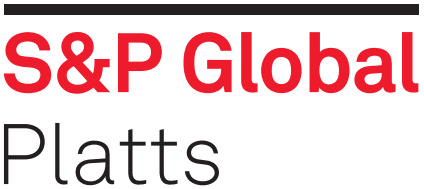
The European Commission will bring forward its exceptional review of steel imports safeguards as EU steel producers struggle amid declining order books and a surplus of low-priced steel on world markets, market sources told S&P Global Platts Friday.
The commission said it would be investigating whether the current safeguard measures on steel imports would need to be modified due to the effects of the coronavirus on the European market, and announced a strict deadline of May 7 for any interested parties to submit their concerns regarding the pandemic’s impact on the quotas for review.
A representative of the European Commission was not immediately available for comment.
One source said it was possible the EU could impose emergency GATT (General Agreement on Tariffs and Trade) rules to restrict steel imports, with a revision likely to be implemented after the current import safeguard quota concludes at the end of the second quarter.
According to Article 21 of GATT, a World Trade Organization member will not be penalized for taking actions it considers crucial to the protection of its “essential security interests”, allowing the EU to exercise all measures of precaution, so long as actions are taken during a time of “emergency.”
The possibility of emergency import restrictions would be a welcomed decision from European steel mills eager to mitigate the effects of weakening demand on falling flat and long products prices.
The European Steel Association (Eurofer) and the European Steel Tube Association (ESTA) already announced their request for a 75% reduction in import quotas for Q2-Q3 of 2020 as added pressure from Chinese, Iranian and Russian steel exports mounts due to weak domestic markets.
Although a reduction in import quotas is a probable outcome of the decision, the cuts are not likely to amount to the 75% reduction requested by Eurofer, sources said.
A Benelux service center source was optimistic that the review outcome would deter import buyers and “prop up” domestic prices in the short term depending on the cuts made, although he remained skeptical of the likelihood of a 75% reduction.
“75% from Eurofer seems like a lot, maybe it’s [more] 25-50% but it’s speculation. The step is necessary, as some mills are really suffering. Situation could be compared with problem in oil – the capacity cuts are smaller than the drop in demand,” he said.
A German steel service center source, however, said a 50-75% reduction in the import quota was a reasonable possibility, considering the European market has declined by approximately 50% as a result of the coronavirus.
Further declines in European steel production are expected as mills’ new order bookings have declined by nearly 75%, Eurofer told Platts last month.
An Italian mill source also said that the European Commission’s imminent review of the quotas would mean “imports will not have any big chances in the near future.”
One European plate mill said it was unrealistic to achieve the 75% quota reduction, but said the quotas should be reduced to be in line with the drop in demand of “15-20% at the moment.”
“The main thing is to eliminate the annual increase in the quota and the redistribution of the residual quota to the countries who have exhausted theirs. Due to the last two points, Ukrainian producers increased their export of plate by 20% and their share in the Polish market has grown to nearly 50% while demand has fallen. I think this is unacceptable because everyone knows Ukraine is dumping due to low cost of natural gas, [less burden of] environmental protection [compared with the EU] and cheap labor,” the mill source said.
A UK-based trader also held a more critical perspective of the import restrictions and said there were parties on both the domestic and import side of the issue with strong arguments, making it difficult to predict any outcome on the market.
“I suppose the market has shrunk so it’s not unreasonable to reduce import quotas a bit, but I doubt a 100% ban or even 75% reduction is reasonable,” he said.
The trader also expected the spread between import and domestic prices to widen as buyers and sellers factor the quota risk into their pricing.
A North European mill source praised the European Commission’s decision to fast-track the review, and said the lobby from the steel industry has been “very strong” given the damaging effects of the coronavirus on the wider market.
Although countries such as Korea and Japan were less disruptive as they sold “quality product at market prices,” it was Vietnam, Russia, Turkey and China “massively damaging” the market.
“We should see people now choosing not to buy imports due to the quota risk for July, and this will push up the backwardated price structure over spot [prices] to 3-4 months. I expect June-July prices to be Eur20-30/mt higher as a result of limitations on imports” the mill source said.
While the imminent review of the European Commission will weigh heavily on the market in the coming days, domestic suppliers remain confident in their ability to provide quality material for their customers on a short-term delivery basis.
“The request to reduce quotas will help of course – but there is optimism for domestic material with shorter lead times. There are already some gaps in inventories, so customers are more interested in quick delivery than in price, they just want to know if we have it, so the pressure on price is not so high,” a German distribution source said.
— Amanda Flint, Wojtek Laskowski, Len Griffin




